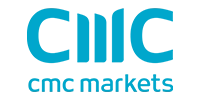Table Of Contents
- Best Online Brokers for FOREX Day Trading
- Best Online Brokerage for Day Trading 2026
- What is Day Trading?
- How Does Day Trading Work?
- How to Choose the Best Online Broker for Day Trading FOREX
- The need for regulation and licensing
- Commissions and fees
- Reliability
- Account minimum
- Execution speed
- Tools, education, and features
- Promotions
- Customer service
- Technical support
- What are the Risks of Day Trading?
- How Leverage and Stop Outs Can Work for You
- Leverage
- Stop-outs
- How Do You Start Day Trading with the Best Brokers?
- What to Consider When Choosing the Best Day Trading Platform?
- Available Assets and Instruments with Day Trading Brokers
- The Bottom Line
- Methodology
The Best Online Brokerages for Day Trading - A 2026 Guide
With many years of meticulous FOREX broker testing, Arincen stands out as a voice of authority. Our analyses, shaped by exhaustive data collection, are trusted by many. Each year, we gather 120 data points from more than 100 brokers. Our team of more than 20 people collaborate extensively to produce high-quality broker reviews like this one. For a detailed explanation of how we test brokers, navigate to the bottom of this article.
Note: We earn money by selling ads, placements, or through partnerships with some companies we have agreements with, learn more.
Day traders operate in a world with little room between success and failure. Having the best platform for their needs can be the difference between heavy losses and handsome profits. As day trading is modelled against professional trading, retail day traders must get the best tools to execute their strategies.
Day trading is all about making money from entering and exiting several trades per day. The best online FOREX trading platforms must guarantee fast and reliable execution at low commissions, with robust platforms and responsive customer service as part of the package. These demanding requirements rule out a great many run-of-the-mill brokers. For the rest, you must carefully analyze the strengths and weaknesses of each broker to get the perfect deal for yourself.
In this article, we will explain day trading in more detail, expand on what traders need to look for in a good day-trading broker and include a list of the best online brokers for day trading.
The top day trading brokers include ICM Capital, Tradeview, XTB, IG, Saxo Bank, CMC Markets and ThinkMarkets.
A good day trading platform must offer lightning-fast execution speed, low latency and high uptime to compete with algorithmic trades.
You should evaluate brokers based on fees, execution reliability, customer service quality, platform tools and the broker’s financial stability.
Simulated trading with demo accounts is essential for beginners to understand the platform and develop a consistent strategy before risking real capital.
Day trading relies on strategies like scalping, high-frequency trading, range trading and news-based trading to profit from intraday price movements.
Success in day trading requires high discipline, solid technical analysis, strong risk management and access to real-time market data.
Fees still matter despite many brokers adopting zero-commission models, and you must consider the fee versus value equation when choosing a broker.
With only about 1% of day traders consistently making money, entering the market without adequate capital, skill or preparation is dangerous.
Best Online Brokers for FOREX Day Trading
| Company Name | Regulations | Minimum Deposit | Main Branch | |
|---|---|---|---|---|

ICM capital |
FCA | $200 | London | |
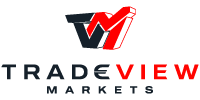
Tradeview |
SCA | $0 | New York, United States of America | |

XTB |
FCA | 0$ | United Kingdom | |

IG Group |
FCA | $250 | United Kingdom |

| Company Name | ICM capital |
| Regulations | FCA |
| Minimum Deposit | $200 |
| Main Branch | London |

| Company Name | Tradeview |
| Regulations | SCA |
| Minimum Deposit | $0 |
| Main Branch | New York, United States of America |

| Company Name | XTB |
| Regulations | FCA |
| Minimum Deposit | 0$ |
| Main Branch | United Kingdom |

| Company Name | IG Group |
| Regulations | FCA |
| Minimum Deposit | $250 |
| Main Branch | United Kingdom |
Best Online Brokerage for Day Trading 2026
There are several outstanding day trading brokers for beginners. As always, it's important to safeguard your investments by partnering with a broker that has a proven history of success and a hunger for constant innovation. Undertaking thorough research is the key. Take a look at our top online brokers that offer day trading:
ICM - Capital 91.10: Best Deposit and Withdrawal Broker
Tradeview - 90.00: Trusted broker that offers very low trading costs as well as comprehensive financial literacy materials for its clients.
XTB - 85.55: Best Customer Service Broker
IG - 85.45: Best Regulations Broker plus Convenient Platform
Saxo Bank - 80.09: Excellent Private Trading Platform
CMC Markets - 80.07: More than 9,000 Assets
ThinkMarkets - 80.05: Aimed at the Audience of Traders

ICM capital
ICM Capital is a UK-origin broker that operates worldwide. The firm provides access to diverse trading products, including FOREX, commodities, futures, and indices. ICM offers a secure and efficient trading environment by combining advanced technology with deep liquidity. The company prides itself on delivering high liquidity, tight spreads, mobile trading, and advanced technical analysis.
Why we picked ICM Capital
For its robust regulatory framework and global oversight. Its presence across multiple jurisdictions demonstrates a genuine commitment to investor protection. This foundation makes it a dependable choice for both new and seasoned traders.
| Broker Evaluation | 9.11 |
| Regulations | FCA |
| Minimum Deposit | $200 |
| Islamic Account | yes |
| Payment Methods | Bank transfer, credit card, Electronic Banks, Crypto |
| Main Branch | London |
| Customer Service | Market Opening Hours |
| Demo Account | Yes |
| Trading Platforms | MT4, MT5, C TRADER, Web Platform |
Pros
-
Segregated client funds.
-
Regulated by the UK’s FCA.
-
Long trading history from 2009.
-
More than 300,000 traders, showing trust.
-
Decent funding options.
-
No swaps.
-
MetaTrader4 (MT4) desktop and mobile download.
-
Competitive spreads
-
ECN spreads starting from zero pips.
-
Fast execution and no-requotes.
Cons
-
No proprietary platform.
-
No US services.
-
Limited cryptocurrency offerings.
-
Inactivity fees which deter casual traders.

Tradeview
Tradeview Markets, the parent company of Tradeview Forex, was established in 2004 and is headquartered in the Cayman Islands. It is committed to offering a broad and accessible trading environment through ECN trading with direct access to dozens of banks and prime liquidity providers, ensuring tight spreads. The broker offers access to a wide range of financial instruments, including FOREX, indices, stocks, cryptocurrencies, and commodities.
Why we chose Tradeview
Our choice was influenced by this broker’s transparent fee structure and competitive pricing, with low spreads and clear cost disclosures. Traders benefit from predictable pricing without hidden charges. Cost efficiency is a crucial advantage in high-frequency and active trading environments.
| Broker Evaluation | 10.00 |
| Regulations | SCA |
| Minimum Deposit | $0 |
| Islamic Account | Yes |
| Payment Methods | Bank Transfer, Credit Cards, Crypto, Electronic banks, local deposits |
| Main Branch | New York, United States of America |
| Customer Service | |
| Demo Account | Yes |
| Trading Platforms | Metatrader 4, Metatrader 5, cTrader, API/FIX |
Pros
-
Variety of trading platforms, such as MT4, MT5, cTrader, and Currenex, catering to different trading preferences and strategies.
-
Provides ECN trading through its innovative Liquidity Connector®, granting direct access to over 50 banks and liquidity providers. Offers tight spreads starting from 0 pips.
-
A low minimum deposit of only $0 is required to start trading, making it accessible to a wide range of traders.
-
Offers a broad range of financial instruments, including FOREX, indices, stocks, cryptocurrencies, and commodities, thus catering to diverse trading interests.
-
Offers educational materials and a demo account, suitable for both beginners and experienced traders looking to refine their strategies.
-
Supports automated trading through the use of Expert Advisors (EA) on MT4 and MT5 platforms.
-
Regulated by CIMA, MFSA, and will soon be regulated by the UK’s Financial Conduct Authority (FCA).
-
Offers global customer service in multiple languages, catering to international traders.
-
Offers competitive leverage up to 400:1.
-
Charges no fees for deposits, making it cost-effective for traders to fund their accounts.
Cons
-
While regulated by CIMA and the MFSA, the broker is still in the final stages of becoming regulated by the tier-one FCA.
-
This means, unfortunately, that the broker currently has no way of offering compensation to affected traders if the broker goes bust. Of course, once FCA regulation is obtained, it will be mandatory for the broker to be part of the Financial Services Compensation Scheme (FSCS) where you could be entitled to compensation of up to £85,000.
-
Trades on the Innovative Liquidity Connector® account are subject to commission charges, which may add to trading costs.
-
Lacks a dedicated mobile app, relying instead on the mobile versions of its available trading platforms.
-
While offering high leverage up to 400:1 can be an advantage, it also introduces significant risks, especially for new traders.

XTB
XTB is a well-regarded broker known for its low costs, extensive asset selection, and advanced trading tools. Founded in 2002 in Poland, it has created a proprietary xStation 5 platform that offers robust features like real-time performance stats, sentiment analysis, and heat mapping. XTB's educational resources are comprehensive, catering to all skill levels with video tutorials, guides, and an accessible Trading Academy. XTB is an excellent choice for cost-conscious traders looking for diverse investment options and high-quality support.
Why we chose XTB
We chose this broker for its responsive and multilingual customer support, available across channels when assistance is needed most. Quick, professional responses reduce friction and build trader confidence. Support quality often reflects overall service reliability.
| Broker Evaluation | 8.55 |
| Regulations | FCA |
| Minimum Deposit | 0$ |
| Islamic Account | yes |
| Payment Methods | Bank transfer, Credit Card, Electronic Banks |
| Main Branch | United Kingdom |
| Customer Service | Market Opening Hours |
| Demo Account | Yes |
| Trading Platforms | MT4, xStation |
Pros
-
20-year history of operation.
-
Regulated by the FCA (UK) and CySEC in Cyprus.
-
Globally recognized, having won multiple awards.
-
Some of the lowest FOREX spreads in the market.
-
Offers protection for client accounts.
-
Emphasis on customer service.
-
Excellent support, as well as learning and research tools.
Cons
-
Does not accept US clients.
-
Number of instruments offered is average-sized.
-
No GSLO.
-
No back-testing or automated trading capabilities.
-
No social trading.

IG Group
IG Group is a highly regarded publicly traded broker that is licensed by 10 regulatory bodies, including the FCA, in its home base of the UK. It offers more than 17,000 financial assets to trade, including currencies, commodities, regular stocks, contracts for difference stocks, ETFs, indices, and cryptocurrencies. Further, it has its own state-of-the-art trading platform and offers a relatively low spread.
Why we chose IG Group
For its clear commitment to transparency and fair dealing, with open terms and client-friendly policies. Honest reporting builds trust and fosters long-term client relationships. We value brokers who prioritise clarity over complexity.
| Broker Evaluation | 8.54 |
| Regulations | FCA |
| Minimum Deposit | $250 |
| Islamic Account | yes |
| Payment Methods | Bank transfer - credit card - Electronic Banks |
| Main Branch | United Kingdom |
| Customer Service | Market Opening Hours |
| Demo Account | Yes |
| Trading Platforms | IG Trading, MT4,ProRealTime,L2 Dealer |
Pros
-
Intuitive mobile and tablet platforms.
-
Low spread costs.
-
Client education offering extensive research materials.
-
Regulated by many reputable authorities.
-
UK and EU clients get negative balance protection.
-
Financially stable and publicly-listed.
-
Rapid response to customer service queries.
-
Extensive range of trading assets.
-
Powerful social trading community.
Cons
-
U.S. clients are limited to FOREX trading only.
-
U.S. clients do not receive negative balance protection.
-
IG CFD prices can be high by industry standards.
-
Limited product portfolio of only CFD and options in many countries.
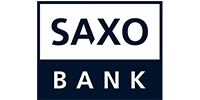
SAXO BANK
Saxo Bank is a well-established, low-risk broker based in Denmark that offers a wide range of trading services to sophisticated traders, institutions, and professional investors. It operates under strict regulatory oversight, ensuring a secure trading environment. The broker provides advanced trading platforms, including SaxoTraderPRO and SaxoTraderGO, catering to high-volume and professional traders with competitive spreads and access to over 71,000 instruments.
Why we chose Saxo Bank
For its comprehensive product range, spanning forex, commodities, indices, and popular CFDs. Such variety allows traders to build diversified portfolios within a single account. This breadth of markets supports evolving strategies and risk preferences.
| Broker Evaluation | 8.09 |
| Regulations | FCA |
| Minimum Deposit | $0 |
| Islamic Account | No |
| Payment Methods | Bank transfer, Credit Card |
| Main Branch | Copenhagen, Denmark |
| Customer Service | Market Opening Hours |
| Demo Account | Yes |
| Trading Platforms | SaxoTrader |
Pros
-
Extensive range of offerings.
-
Offers portfolio-based margin trading for pros.
-
Regulated by top regulators.
-
Excellent trading platforms.
-
Diverse account types.
-
Among the industry’s best research tools.
-
Offers protection for client accounts.
-
No inactivity fee.
-
No platform fees.
-
No minimum funding for entry-level accounts.
Cons
-
Some bonds, options, and futures fees are high.
-
With so many assets, fees can be confusing.
-
High minimum deposit for Platinum and VIP accounts.
-
Does not accept US clients.
-
No MT4 for traders who are used to the platform.
-
No GSLO.
-
No Islamic accounts.
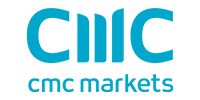
CMC MARKETS
CMC Markets is a global CFD and FOREX broker established in 1989. It is regulated by several authorities globally. The company delivers a formidable offering for traders thanks to excellent pricing, nearly 12,000 tradable instruments, and its proprietary Next Generation trading platform. The platform comes packed with quality research, innovative trading tools, and powerful charting. CMC provides traders with access to an extensive range of CFDs and spread betting across several asset classes.
Why we chose CMC Markets
This broker’s risk management tools and flexible order types stood out to us, enabling traders to tailor positions according to market conditions. Features like stop losses, take profits, and conditional orders provide strategic control. These tools are essential for disciplined trading.
| Broker Evaluation | 8.07 |
| Regulations | FCA |
| Minimum Deposit | 0$ |
| Islamic Account | No |
| Payment Methods | Bank transfer, Credit Card, Electronic Banks |
| Main Branch | United Kingdom |
| Customer Service | Market Opening Hours |
| Demo Account | Yes |
| Trading Platforms | Proprietary Platform, MT4, Web Platform |
Pros
-
Extensive range of offerings.
-
Regulated by the FCA (UK) and other top regulators.
-
Low FOREX fees.
-
Emphasis on education and customer service.
-
Great Web and mobile platforms.
-
Offers protection for client accounts.
-
Research amenities are industry leading.
Cons
-
Does not accept US clients.
-
High CFD spreads for certain indices.
-
It only offers CFD trading, so traders cannot own the underlying asset.
-
Does not support deposits and withdrawals through electronic payments.

think markets
ThinkMarkets is a multi-regulated broker with offices around the globe. The firm is primarily a CFD broker, allowing you to trade across 4,000 instruments in FOREX, futures, commodities, indices, ETFs, crypto, and stocks. With an emphasis on superior customer service, ThinkMarkets maintains round-the-clock support in several languages. It provides different trading accounts suited to individual traders' needs. This includes zero-commission accounts and access to trading guides, analysis tools, and industry news feeds.
Why we chose ThinkMarkets
We selected this broker for its fast and flexible funding options, including bank transfers and card payments. Smooth deposits and withdrawals reduce administrative delays and support efficient capital management. Accessibility of funds is an often-overlooked but essential feature.
| Broker Evaluation | 8.05 |
| Regulations | FCA |
| Minimum Deposit | $0 |
| Islamic Account | Yes |
| Payment Methods | Bank transfer - credit card - Electronic Banks - Crypto |
| Main Branch | Australia |
| Customer Service | Market Opening Hours |
| Demo Account | Yes |
| Trading Platforms | Proprietary Platform, Web Platform, MT4, MT5 |
Pros
-
Beginner assistance is offered through round-the-clock channels.
-
Spreads are as low as 0.0 pips.
-
Round-the-clock expert customer service.
-
CFD shares and indices come at no extra fee.
-
Zero broker fees for FOREX trading.
-
Technical analysis and quality market information.
Cons
-
No binary options are offered.
-
Commissions are charged for two account types.
-
Range of tradeable assets is not as wide as some competitors.
-
No US clients allowed.
There is a high degree of risk involved in trading securities like FOREX, or CFDs, which are highly complex instruments. As a trader, you could be exposed to excessive leverage, questionable broker tactics, market volatility, and limited regulatory protection. Despite your best trading techniques and risk management strategies, your efforts may not be profitable, and you could suffer losses.
What is Day Trading?
Day trading is when retail traders buy and sell a security multiple times on the same day to make a profit from short-term movements. They deal in securities like FOREX, bonds, stocks, and exchange-traded funds (ETFs). To qualify as a day trader, you must exit all your trades at the end of a daily trading session.
Some day traders are discretionary traders, which means they watch market conditions and decide when to enter and exit trades based on their sense of whether they will be successful. Other types of day traders deal more systematically, automating strategies along a set of predetermined rules.
Day trading originated in Wall Street, where highly skilled professional traders travelled to a stock exchange and traded all day before closing their positions by the final bell. However, with the growth of online brokerage firms, backed by powerful platforms and instantaneous newsfeeds and low commissions, home-based traders can now replicate the day-trading format popularized by professional traders.
How Does Day Trading Work?
Day trading can make you a lot of money if you do it right. Of course, we must also say that you can just as easily lose money. Traders who are new to this type of trading are in for a bumpy ride if they do not approach it with a well-thought-out strategy.
The speed of the market and the sheer number of transactions you need to make day trading worth your while mean that it is vital you have a strong plan.
Normally, long-term investors try to buy low and sell high as a basic concept. It may take several days or weeks for their trades to reach a point where they are content to close them. Some longer-term instruments, like bonds, require that you hold on to them for months.
With day trading, investors look to opportunistically profit from daily price movements in any direction. Relying on intraday price fluctuations to make them money, they rely on rapid order execution of instruments that trade in high volumes and are characterized by high volatility. The FOREX market and the stock market are perfect examples of this.
Day traders use several tools at their disposal to make the most of each trading day. One example is how they use leverage to profit from movements in markets. Here are some other key characteristics of day trading:
Day traders are normally well-educated and well-capitalized.
Day trading requires traders to be highly disciplined and objective.
Day trading requires a sound strategy informed by technical analysis.
Day trading is certainly an exciting field in which to play. Yes, the potential profits are a major draw, and they always will be, but many traders appreciate the thrilling cut and thrust of making deals in a highly liquid and volatile space.
One aspect of which day traders must make the most is using the news to their advantage. For this reason, many traders watch scheduled announcements of corporate earnings, economic updates, or interest rate changes with great attention. They come to understand how market sentiment affects market psychology and they use it to their advantage. Some of the most common trading strategies day traders use are:
Scalping: This is where traders attempt to make small profits from minuscule price movements throughout the day.
High-frequency trading (HFT): Using advanced algorithms, traders look to make the most of short-term inefficiencies that exist in every market.
Range trading: This is a strategy where traders identify a range of fluctuation outside of which they believe an instrument will not stray, and they only trade inside that range.
News-based trading: By watching important news updates, traders can anticipate if markets will be buoyed or deflated by important performance or policy updates.
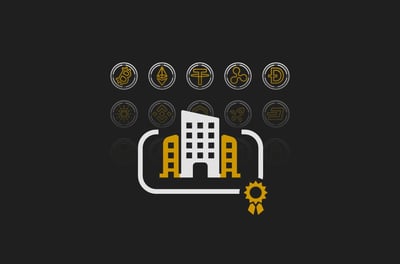
How to Choose the Best Online Broker for Day Trading FOREX
With so much choice out there, it can be difficult to decide on a broker with whom to work. As you may have noticed by now, day trading requires you to perform due diligence and give the entire process your full attention. It is a fast-moving and highly volatile trading environment in which you need to be switched on at all times. There is nothing passive about day trading, and you cannot delegate the selection of the ideal broker to a broker rankings page, even if it gives you a good start! To give you the best chance of success, we'll tell you about factors that can help you choose the best online day-trading FOREX broker:
The need for regulation and licensing
Online brokers who offer their services to day traders must be regulated by a top-notch oversight body. Regulated brokers are compelled to stick to common best practices, like keeping their operating funds separate from client funds, complying with strict leverage rules, and staying away from offering bonuses and overly generous promotions.
It is always a good sign if your broker is active in countries that are regulated by tier-1 bodies, like the Financial Conduct Authority (FCA) in the UK and the Cyprus Securities and Exchange Commission (CySEC) in Cyprus. They are two of the best regulators in the world. although there are more good ones. However, even if your broker is only regulated by a reliable oversight body in your country, that is good enough.
Here is a list of major reasons your broker must be regulated:
Safety of funds:
A regulated broker must comply with strict regulations to protect client funds, including segregating client funds from the company's own funds.
Fair trading practices:
A regulated company must adhere to strict guidelines ensuring products and services are offered fairly and without manipulation, helping create a level playing field for all clients.
Transparency:
The law compels regulated brokers to be transparent with clients, which assures you of safe trading. In practice, this looks like brokers stating openly that FOREX trading is highly risky and that you could lose your money.
Protection from fraud:
Regulatory authorities protect clients from fraudulent activities and scams by ensuring that FOREX brokers operate within set guidelines to safeguard clients' interests.
Commissions and fees
Trading fees are not always easy to account for. Be sure to check how these fees compare with those of other brokers:
Commissions are, broadly speaking, no longer such a big concern for day traders as much of the industry has moved to a zero-commission model. However, minimum deposits must be considered. In the US, the stipulated minimum deposit is $25,000, but traders in Europe and other regions can get trading with much less.
The following are some of the fees that day traders may encounter:
Spreads: In FOREX day trading, a spread is the difference between the price at which a trader can buy (ask) and the price at which they can sell (bid) a currency pair. The spread can be categorized into two main types: fixed and variable.
Fixed Spreads: As the name suggests, fixed spreads remain constant regardless of market conditions. They don't change during the day and are generally set by the broker. Some traders prefer fixed spreads because they provide predictability, especially during times of high market volatility.
Variable Spreads: These spreads fluctuate based on market conditions. During times of low liquidity or high volatility, variable spreads can widen. However, during times of high liquidity and normal market conditions, the spreads can be very narrow. This type of spread is a direct reflection of market supply and demand.
Example of Good vs. Worse Spreads for EUR/USD: A good spread for the EUR/USD currency pair might be around 1.4 pips. This means that if the bid price is 1.1000, the ask price would be 1.10014. A worse spread could be significantly higher, let's say 3.0 pips over the bid price. In this scenario, if the bid price is 1.1000, the asking price would be 1.1003. Traders always prefer narrower spreads because the cost of entering and exiting a trade is lower. However, it's essential to consider other factors, like the broker's reliability, platform features, and overall trading conditions when choosing among brokers offering different spreads. This article explains more about this important concept.
Trading fees: These are commissions charged by brokers for executing orders on the sale or purchase of securities, including stocks, commodities, options, or exchange-traded funds (ETF). Trading fees vary from firm to firm, so it's important to verify a brokerage's fee schedule before deciding to use their services
Management or advisory fees: These are fees charged by investment advisors for managing a client's portfolio. They are typically a percentage of the assets under management.
Trading platform fees: Some brokers charge fees for using their trading platforms. These fees can range from $50 to more than $200 per month.
Paper statement fees: Some brokers charge fees for paper statements. Opting for emailed statements and notifications can help avoid these fees.
Account closing or transfer fees: Some brokers charge fees to transfer or close an account. Some brokerages will offer to reimburse transfer fees incurred by new customers.
It's important to note that fees can take a bite out of investment earnings, and the more frequently a trader trades, the more they can pay in fees.
Comparing day trading broker costs is not an easy task as many brokers do not charge traditional trading fees, which is one of the best ways to directly compare broker prices.
It might not be what an under-capitalized day trader wants to hear, but the quantum of fees payable is often less important than the “fee versus value” equation.
There is no formal equation to measure this, except to say that investors need to tally what they are getting for the fees they pay. This involves undertaking fundamental research, as opposed to simply comparing fees on a table.
It is important to note that not all brokers charge the same fees for the same service, let alone call them the same thing! Even if they have significant fee overlap, brokers may be more expensive on one fee line and cheaper on another. Traders need to conduct their research while paying attention to the fee versus value equation.
To assess trading costs accurately, the Arincen research team examined broker pricing across multiple sources, combining published fee schedules with observed trading conditions. Our analysis focuses on spreads, commissions, and additional charges that impact traders in practice. You can see the consolidated findings in the table that follows.







| Spread | Commission | Swap | Islamic Account | |
| Currencies | Starting from 1.3 Pips | 0$ | No | Available |
| Stocks | Starting from 18 Pips | 0$ | Yes | Unavailable |
| Commodities | Starting from 2.3 Pips | 0$ | No | Available |
| Indices | Starting from 4 Pips | 0$ | Yes | Unavailable |
Reliability
Day-trading broker platforms must be robust and durable. With lightning-fast trading conditions, your broker’s platform must have high uptime and low latency.
Account minimum
US day traders are saddled with a high minimum of $25,000, but day traders in other areas can choose their broker based in part on account minimums. Every trader has different amounts of capital available to them. Choose the broker that lowers the financial barriers to entry to a trading career.
Execution speed
There is no getting around the importance of fast execution in day trading. A broker with mediocre execution speed places the trader at a significant disadvantage in the competition with algorithmic trades and professional traders. In fact, for day traders, it may be the most important deciding factor.
Tools, education, and features
This applies to traders of all instruments and it's no less important to day traders. You will need to have access to well-developed tools, strong educational materials, and features that give you an edge in this competitive space.
Promotions
There are often restrictions on promotions, with Europe being a prime example where promotions are discouraged; but if your broker operates in a jurisdiction where you can get an attractive offer, it may be something to consider.
Customer service
Traders will always need access to a responsive customer desk, preferably one that operates across many time zones and offers multilingual support. As a day trader, you never want to be saddled with an account issue or a technical issue that hampers you during a trading session.
Technical support
Day trading requires access to high-quality technical tools. Technical support, not to be confused with general customer support, is required when advanced tools and features malfunction.
Based on in-house analysis by the Arincen team, we reviewed pricing data from both official broker websites and live market conditions. This included spreads, commissions, and trading fees observed in real use. The results of that comparison are summarized in the table below.







| Live Chat | Phone | |||
| Available | Available | Available | Available | Available |
| Quick response | Quick response | Fast | Fast | Fast |
What are the Risks of Day Trading?
- execution speed,
- trading capital,
- access to powerful technology, and
- software knowledge.
Tip for those who have no experience
At Arincen, we operate on the principle that a well-informed trader is a successful one. That’s why we’ve assembled an array of educational and research tools crafted for traders like you. Immerse yourself in our in-depth articles to understand core concepts, engage with our educational videos, and steer your trading decisions with our updated newsfeed and precision signals.
Be Careful of Non-Regulated Brokers
Your broker should be regulated by a reputable authority who has a history of strong oversight. Your broker does not have to be regulated by an overseas watchdog, you can also go with a regulator in your jurisdiction. To check if your broker is registered with a regulator, navigate to the regulator’s official website.
How Leverage and Stop Outs Can Work for You
Leverage
Leverage, while offering handsome profits, significantly increases potential losses. Engaging in high leverage trading without a robust risk management strategy is like navigating treacherous financial waters without a safety net. Approach leverage with caution, employ sound trading strategies, and always try to develop a comprehensive understanding of market behaviors and how they affect your portfolio when you trade on leverage.
Stop-outs
A stop-out refers to a situation where a broker automatically closes some or all of your open positions to prevent your account from going into a negative balance. To be clear, this is an unwanted situation on your part, as it means something has gone wrong with your trading strategies.
This is especially relevant for traders using leverage. The stop-out level is typically expressed as a percentage, representing the margin level at which the broker starts to close out open trades.
Here are the three most common stop-out levels:
0% Stop-Out Level:
At this level, when the margin level of the account drops to 0%, the broker will automatically close all open positions. This is the most aggressive stop-out level, and it gives no room for your positions to recover, even if the market turns in your favor immediately after reaching this level.
Here's how it works:
Imagine you have a day-trading FOREX account with a balance of $10,000 and you've opened several positions in the market. Your broker has a 0% Stop-Out Level policy, which means that if your margin level drops to 0%, they will automatically close all your open positions to prevent further losses.
You start with a $10,000 trading account balance
Using 30:1 leverage, you can control $300,000 worth of currency with your $10,000 account
You open a position in EUR/USD with a notional value of $300,000, and the margin required for this trade is $10,000 (3.33% of the notional value)
The market moves against your position, causing your account balance to drop to $9,000
If your losses accumulate, your account balance decreases, and your margin level (account equity divided by used margin) drops accordingly
When it reaches 0%, the broker's 0% Stop-Out Level policy comes into play
50% Stop-Out Level:
Here, if the margin level drops to 50%, the broker will start closing out positions. It offers a bit more flexibility compared to the 0% level. The broker will typically close the most unprofitable positions first, and if that's not enough to bring the margin level back above 50%, more positions will be closed until it's achieved.
100% Stop-Out Level:
A 100% stop-out level means that when a trader's equity equals the margin required for the open positions, the broker will start closing those positions. It's important to know that this is similar to the 0% level but might be worded differently, based on broker terminology.
It's worth noting that while stop-out procedures are meant to protect traders from negative balances, they can lead to significant losses in volatile markets if positions are closed automatically, especially if the market quickly reverses after the stop out. As such, using protective measures, like stop-loss orders and not over-leveraging, is always a good idea. Additionally, the specific percentage and the order in which positions are closed can vary among brokers, so day traders need to be aware of their broker's policy on stop-out levels.
How Do You Start Day Trading with the Best Brokers?
Our pricing review draws on Arincen’s independent research, where we analysed broker cost structures using both advertized rates and real-world trading data. By comparing spreads, commissions, and related fees, we aimed to reflect what traders are likely to experience. The outcome of this assessment is displayed in the table below.







| Method | Credit Card | Wire Transfer | Skrill | Neteller | Cryptocurrency | PayPal |
| Deposit fee | 0$ | $0 + Bank commission | 1.9% | 2.5% | Unavailable | 3.75% |
| Withdrawal fee | 0$ | $15 | 1% | $0 | Unavailable | 2% |
What to Consider When Choosing the Best Day Trading Platform?
Choosing the right broker for day trading means balancing cost, reliability, and market access. Compare trading fees, asset coverage, and leverage conditions across regulated platforms. Study execution speed, slippage history, and available analytical tools. A serious trader picks a broker that performs well under real market pressure, not just on paper.
When choosing a trading platform, you should consider a range of features that cater to both novice and seasoned traders. Here are some elements to keep in mind:
Technical analysis tools: The platform should have robust technical indicators to help traders make informed decisions.
Customization and user interface: Traders should be able to mold the platform according to their preferences, allowing them to set up their trading environment precisely how they want. We find that the products from the MetaTrader suite, especially MT4, offers excellent features for this purpose.
Platform accessibility: A top-notch trading platform should offer flexibility in terms of access, whether it's web-based or a downloadable application.
Risk-management tools: Trading inherently comes with risks, and a high-quality platform should provide instruments that allow traders to set stop-losses, take-profits, and other crucial order types.
Performance and reliability: Beginner traders especially need a platform that operates seamlessly with minimal downtimes or glitches. This ensures a smooth trading journey, allowing them to focus on market movements rather than technical hiccups.
Learning and educational resources: The best brokers will offer platforms that are not only intuitive, but also come with tutorials, guides, and responsive customer support to assist traders in navigating any challenges they might face.
To choose the perfect trading platform, here’s some advice:
Determine your trading style and needs.
Research different platforms and compare their features.
Test the platforms with a demo account to see which one suits you best.
Choose a platform that offers the features you need and is user-friendly.
Ensure that the platform is reliable and has a good reputation in the industry.
Remember that the trading platform you choose can have a significant impact on your trading success, so it's important to choose wisely.
Available Assets and Instruments with Day Trading Brokers
As part of our evaluation process, the Arincen team gathered and cross-checked broker pricing from official documentation and live trading environments. This approach allowed us to compare spreads, commissions, and fees under actual market conditions. The breakdown of our findings is presented in the table that follows.
| Brokers | Currency pairs | Stocks | Indices | Commodities | Crypto | ETFs |
| Tradview | 80 Pairs | 5000 Shares | 10 Indices | 10 Commodity | 30 Coins | Unavailable |
| ICM Capital | 67 Pairs | 89 Shares | 17 Indices | 12 Commodity | 6 Coins | Unavailable |
| XTB | 57 Pairs | 1848 Shares | 36 Indices | 22 Commodity | 22 Coins | 135 ETFs |
| IG | 81 Pairs | 21714 Shares | 49 Indices | 39 Commodity | 11 Coins | 12858 ETFs |
| Saxo Bank | 320 Pairs | 22000 Shares | 49 Indices | 39 Commodity | 9 Coins | 6700 ETFs |
| CMC Markets | 330 Pairs | 8000 Shares | 80 Indices | 100 Commodity | 18 Coins | 200 ETFs |
| Think Markets | 46 Pairs | 3750 Shares | 15 Indices | 11 Commodity | 21 Coins | 350 ETFs |
The Bottom Line
Recommended Brokers
Methodology
The team at Arincen collected over 120 pieces of data covering more than 100 licensed FOREX companies. Data collection was done in three ways:
Companies’ websites.
Other Websites that have ranked FOREX companies.
A survey questionnaire (referred to here as Survey “1”) was sent to the companies invited to participate in the exercise.
We have identified 12 criteria for our assessment, each containing several aspects and carrying its relative weight. These include licensing, deposits and withdrawals, number of assets, day trading, etc.
Afterwards, we validated the data by:
Registering with FOREX companies as a secret shopper and/or as Arincen.
Survey number “2,” in which we asked these companies’ customers for important feedback and experience.
The next step saw us evaluate and rank each company, relying on the hard work of 15 Arincen employees. We were very careful in ensuring the most accurate assessment possible, including considering different languages, as well as the various mobile-app operating systems, e.g., Apple, Samsung etc.
To add credibility to our research project, we sent a third and final survey (referred to here as Survey “3”) to enable participating FOREX companies to evaluate our research and whether it accurately reflects the realities on the ground. We were fortunate enough to receive a mark of 9.9 out of 10! We have kept to a minimum the margin of error, which stood at a measly 1%. To learn more about how we came up with the evaluation, please click here.
Forex Risk Disclaimer
Trading foreign exchange on margin carries a high level of risk, and may not be suitable for all investors. The high degree of leverage can work against you as well as for you. Before deciding to trade foreign exchange you should carefully consider your investment objectives, level of experience, and risk appetite. The possibility exists that you could sustain a loss of some or all of your initial investment and therefore you should not invest money that you cannot afford to lose. You should be aware of all the risks associated with foreign exchange trading, and seek advice from an independent financial advisor if you have any doubts.
FAQ
The proceeds from day trading are generally taxable. Remember that day trading is a trading style, not a distinct financial asset. So, you can be a day trader of FOREX, cryptos, or stocks. The taxation of financial trading varies greatly from country to country and depends on local tax laws and regulations. It is always a good idea to contact a tax expert in your country to fully understand your tax liability.
Starting with a demo account is the way to go. With this approach, you can practice without fear of losing real money.
You could suffer heavy losses. All trading activity comes with risks, but day trading contains significant risks because of how fast trades open and close, the effect of leverage, and the fact that in some jurisdictions you must be well capitalized to even qualify for an account. You can mitigate these risks by educating yourself on day trading before you start, practicing on a demo account, and never risking a significant amount of your capital on any one trade. Very few day traders consistently make money. The vast majority lose money. You can improve your chances of success by working rationally to a well-researched plan.
Day trading is legal in the vast majority of open economies. Even in the US, which has imposed tight restrictions on how pattern day traders can operate, the practice is legal.
Besides the US Securities and Exchange Commission (SEC) mandating that you keep no less than $25,000 in your account as a day trader, there is no set amount you need to have to day trade. Some jurisdictions do not require a minimum balance at all. As always, you are advised to only risk the money you can afford to lose.
Margin is when you use your broker’s money to place trades. When you trade on margin, you stand the risk of suffering heavy losses. Margin trading is a risky exercise and you need to know the pitfalls before you start trading on margin.
It is vital to have access to well-developed day-trading software. Watch out for commissions of any kind as these can be debilitating in the long run. You also need to place a premium on execution speed. Your online broker must be reliable and offer fast execution on a platform with high uptime.
This is the precious information that many thousands of traders are trying to uncover every day. The instruments you end up day trading are a matter of personal choice informed by market information and several other factors. Suffice it to say, there are a few key factors you need to keep in mind when day trading. This type of trading is best suited to instruments that are highly liquid, volatile and can be traded in large volumes.
Yes. Some traders use multiple platforms at the same time. While day trading is an active trading form that requires dedicated attention, these traders manage to keep a steady eye on their trades across more than one platform. The reasons for doing this include needing a backup account in case of outages, or because one platform contains features the other does not. It is mainly for well-capitalized traders as they need at least double the capital a normal trader would need.
The cold hard truth is that very few traders do so profitably over time. In today’s trading landscape that includes sophisticated algorithms powered by advanced computers with the heft of large hedge funds behind them, the average day trader has a slim chance of getting a meaningful piece of the pie. Any market inefficiency gets swept up by bigger and more professional parties. Further, gullible traders end up paying a lot for peripheral ways to increase their chances of success. These include chat-room memberships, educational courses and information subscriptions. That said, there is always a percentage of day traders who are successful, it just takes experience, application, capital and skill.
This article is dedicated to breaking down the most crucial factors to look for when engaging with a day-trading broker. In short, brokers must be regulated, well-established and well-capitalized. Crucially, they need to have advanced platforms that place an emphasis on speed of execution, providing market news while giving traders access to excellent liquidity. Fees are also a consideration that every trader must factor into their decision making.

